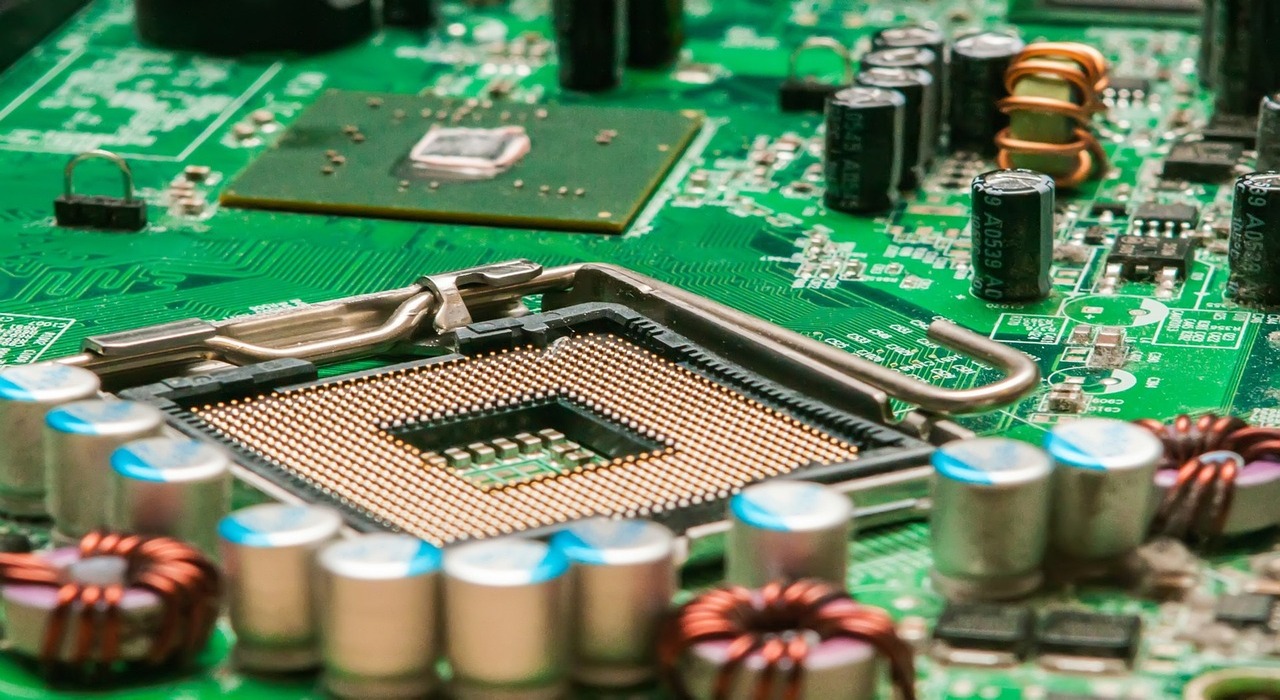B.Sc. in Electrical Engineering
Five for regular and six for extension
Upon admission to the universities/Institutes of Technologies, students will join the School of Electrical and Computer Engineering based on the placement by the universities/Institutes of Technologies and the students’ interest for the discipline after completing the freshman semester.
Students must take and pass all the required modules to satisfy the requirements for graduation. CGPA and MGPA at least 2.00 No “F”, “D” grades Other requirements might be set by specific University graduation requirements.
Program Details
Electrical engineers design, develop, test, and supervise the manufacturing of electrical and electronic equipment. Some of this equipment includes power generating, controlling, and transmission devices used by electric utilities and electric motors, machinery controls, lighting and wiring in buildings, automobiles, aircraft, radar and navigation systems, and broadcast and communications systems. Computer engineers are involved with digital technologies such as computer hardware and the development of more efficient circuitry on silicon computer chips. They research, design, develop, and test computer hardware and supervise its manufacturing and installation. Computer software engineers often work as part of a team that designs new hardware, software, and systems. As a computer engineering student, you will study computer architecture, software engineering, computer-aided design (VLSI), microprocessor-based design, and applied algorithms.
Electrical & Electronics Engineering (EEE), deals with the engineering problems, opportunities, and needs of electrical, electronics, computer, telecommunication systems, and related industries. This branch provides students with a wide range of fundamental knowledge in core disciplines such as communications, control systems, signal processing, radio frequency design, micro-processors, micro-electronics, power generation, and electrical machines. The discipline focuses on the design and manufacture of electrical, and electronic devices, computers, and their component parts, as well as on the integration of components into complex systems.

Carrier Direction
- EEE Engineers focuses on the analysis, design, development and manufacture of electrical equipment’s, electronic devices, Mechatronics technologies, and automation and control systems Electrical.
- Engineers deal with power generation and transmission systems.
- EEE engineers, design circuits for electrically operated vehicles, computers, digital devices, electronic memory storage devices, industrial robots and CNC machines.
- EEE Engineers setup & operate the telecommunication, wireless and internet networks.
- Apply electrical and electronic theory and related knowledge, usually under the direction of engineering staff, to design, build, repair, adjust, and modify electrical components, circuitry, controls, and machinery for subsequent evaluation and use by engineering staff in making engineering design decisions.
- On the job, you would: Modify, maintain, or repair electronics equipment or systems to ensure proper functioning. Replace defective components or parts, using hand tools and precision instruments. Set up and operate specialized or standard test equipment to diagnose, test, or analyze the performance of electronic components, assemblies, or systems. Research, design, develop, or test computer or computer-related equipment for commercial, industrial, military, or scientific use. May supervise the manufacturing and installation of computer or computer-related equipment and components. On the job, you would: Update knowledge and skills to keep up with rapid advancements in computer technology.
- Design and develop computer hardware and support peripherals, including central processing units (CPUs), support logic, microprocessors, custom integrated circuits, and printers and disk drives. Confer with engineering staff and consult specifications to evaluate interface between hardware and software and operational and performance requirements of overall system.
Applications Engineer
Computer Engineer
Control Systems Engineer
Electrical Engineer
Electronics Design Engineer
Financial Application Engineer
Interfaces Support Engineer
Intermediate Web Developer
Microelectronics Engineer
Mobile Gaming iOS Developer
Outside Plant Engineer
Plasma Engineer
Product Sustaining Engineer
Product /Test Development Engineer
Programmer Analyst
Robotics Engineer
Software Engineer
Transportation and Protection Engineer
Mobile Gaming iOS Developer
Outside Plant Engineer
Plasma Engineer
Product Sustaining Engineer
Product /Test Development Engineer
Programmer Analyst
Robotics Engineer
Software Engineer
Transportation and Protection Engineer
Courses
| Courses | Course ECTS | Cr/Hr. |
|---|---|---|
| Communicative English Skill | 5 | 3 |
| Basic Writing Skills | 5 | 3 |
| Civics and Ethics | 5 | 3 |
| Introduction to Logic | 5 | 3 |
| Applied Mathematics I | 7 | 4 |
| Applied Mathematics II | 7 | 4 |
| Engineering Mechanics I-Statics | 6 | 3 |
| Engineering Mechanics II-Dynamics | 6 | 3 |
| Introduction to Engineering Profession | 2 | 1 |
| Engineering Drawing | 6 | 3 |
| Introduction to Economics | 5 | 3 |
| Introduction to Computing | 5 | 3 |
| Engineering Thermodynamics | 4 | 2 |
| Applied Modern Physics | 5 | 3 |
| Electromagnetic Fields | 5 | 3 |
| Electrical Materials and Technology | 5 | 3 |
| Applied Engineering Mathematics III | 7 | 4 |
| Computational Methods | 6 | 3 |
| Probability and Random Process | 5 | 3 |
| Fundamental of Electrical Engineering (Circuit) | 6 | 3 |
| Electrical Engineering Lab I | 3 | 1 |
| Electrical Workshop Practice I | 3 | 1 |
| Applied Electronics I | 5 | 3 |
| Electrical Engineering Lab II | 3 | 1 |
| Applied Electronics II | 5 | 3 |
| Electrical Engineering Lab III | 3 | 1 |
| Signals and Systems Analysis | 6 | 4 |
| Network Analysis and Synthesis | 6 | 4 |
| Introduction to Electrical Machines | 6 | 3 |
| Machine Lab | 3 | 1 |
| Electrical Workshop Practice II | 4 | 2 |
| Digital Logic Design | 6 | 4 |
| Object Oriented Programming | 5 | 3 |
| Computer Architectures and Organization | 5 | 3 |
| Digital Signal Processing | 5 | 3 |
| Electrical Engineering Lab V | 4 | 3 |
| Introduction to Instrumentation | 5 | 3 |
| Introduction to Communication Systems | 5 | 3 |
| Introduction to Control Engineering | 5 | 3 |
| Introduction to Power systems | 5 | 3 |
| Microcomputer and Interfacing | 6 | 3 |
| Database Systems | 5 | 3 |
| Data Structures | 5 | 3 |
| Algorithm Analysis and Design | 4 | 3 |
| Software Engineering | 5 | 3 |
| Operating systems | 5 | 3 |
| Introduction to Compilers | 5 | 3 |
| Data Communication and Computer Networks | 5 | 3 |
| Computer and Network Security | 5 | 3 |
| VLSI Design | 5 | 3 |
| Embedded Systems | 6 | 3 |
| Introduction to Robotics | 5 | 3 |
| Modern Control Systems | 5 | 3 |
| Electrical Machines | 5 | 3 |
| Power Electronics | 5 | 3 |
| Electric Drives | 5 | 3 |
| Power Systems | 5 | 3 |
| Power System Protection and Control | 5 | 3 |
| Electrical Installation | 5 | 3 |
| Energy Conversion and Rural Electrification | 5 | 3 |
| Hydropower Engineering | 5 | 3 |
| Power System Planning and Operation | 5 | 3 |
| Computer Application in Power Systems | 3 | 2 |
| Microelectronic Devices and Circuits | 5 | 3 |
| Communication System | 5 | 3 |
| Data Communication and Computer Networks | 5 | 3 |
| Telecommunication Networks | 5 | 3 |
| Wireless and Mobile Networks | 5 | 3 |
| Switching and Intelligent Networks | 5 | 3 |
| EM Waves and Guide Structures | 5 | 3 |
| Antennas and Radio Wave Propagation | 5 | 3 |
| Microwave Devices and Systems | 5 | 3 |
| Optics and Optical Communication | 5 | 3 |
| Electrical Installation | 5 | 3 |
| Electrical Machines | 5 | 3 |
| Power Electronics | 5 | 3 |
| Electric Drives | 5 | 3 |
| Modern Control systems | 5 | 3 |
| Digital Control Systems | 5 | 3 |
| Instrumentation Engineering | 5 | 3 |
| Embedded Systems | 5 | 3 |
| Introduction to Robotics | 6 | 3 |
| Industrial Process Control and Automation | 5 | 3 |
| Principles of Electronics Design | 5 | 3 |
| Analog System Design | 5 | 3 |
| Digital System Design | 5 | 3 |
| VLSI Design | 5 | 3 |
| Microelectronic Devices and Circuits | 5 | 3 |
| High Frequency Electronic Devices and Systems | 5 | 3 |
| Power Electronics Technology andApplications | 5 | 3 |
| Optoelectronics | 5 | 3 |
| Modern Trends in Electronics Engineering | 5 | 3 |
| Research Methods and Presentation | 3 | 1 |
| Semester Project | 4 | 2 |
| Industry Internship | 30 | 15 |
| Entrepreneurship | 4 | 2 |
| Industrial Management and Engineering Economy | 5 | 3 |
| B.Sc. Thesis | 12 | 6 |

